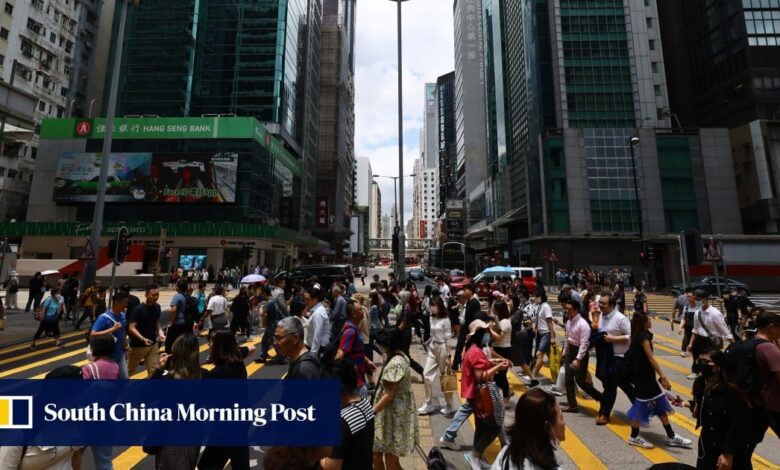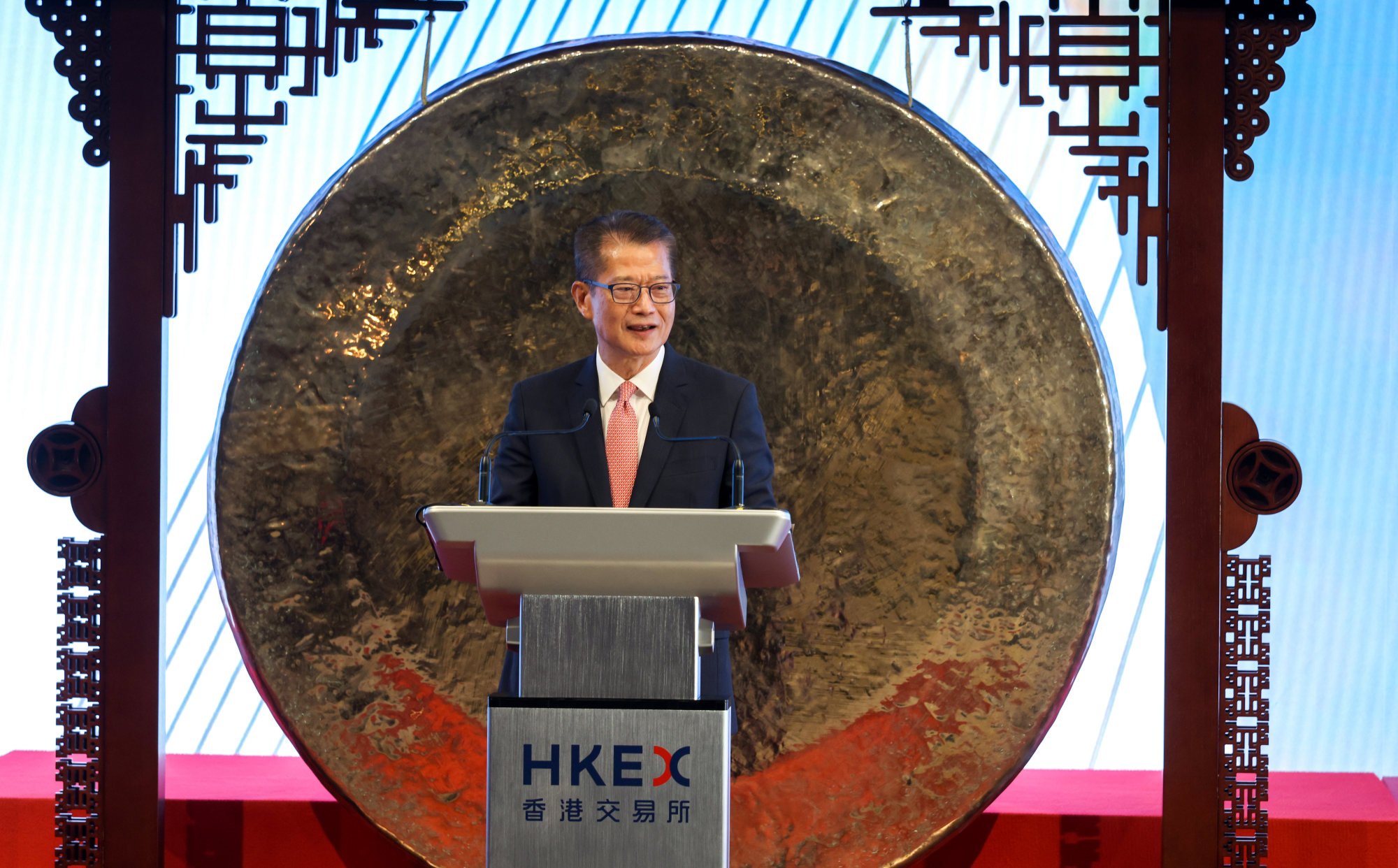Lowering Hong Kong’s stamp duty on securities trading not silver bullet for sluggish stock market, finance chief warns

[ad_1]
“There are calls in the market for reducing the stamp duty, but statistics have shown that any reduction cannot address structural issues and stimulate turnover over the long run.”
He warned of backfires: “Any piecemeal stimulus measures will not only fail to boost the market, but further weaken investors’ confidence.”

Last Tuesday, the government announced the task force led by securities regulatory veteran Carlson Tong Ka-shing to look into stock market liquidity, including scrutinising the listing regime, market structure and trading mechanism, to boost the city’s status as a global financial hub.
Chan said the task force would draw from the wisdom and work of financial heavyweights and regulatory experts to review advantages and challenges of the stock market and hammer out strategies over the short, medium and long term.
Members of the task force would meet for the first time this week, he said.
Hong Kong ‘to tap financial heavyweights’ for new stock market task force
Hong Kong ‘to tap financial heavyweights’ for new stock market task force
In 2021, the city raised stamp duty on the trade value for buyers and sellers on all share transactions by 30 per cent to 0.13 per cent in 2021, the third increase since 1998.
Chan on Sunday pointed out that during the initial months of the increase in 2021, between August and December, the average daily turnover of securities trading jumped 2 per cent year on year.
He said the turnover rate of stocks had jumped to 0.27 per cent in 2022, from 0.22 per cent in 2020, with the higher rate indicating more active stock trading.
The minister explained that stock-trading activities were affected by geopolitics and market sentiment.
“The task force will review external and internal factors such as the listing regime market structure and trading mechanism, study how to broaden sources of funding and funding streams, attract more quality enterprises to float on the stock market, innovate investment products and boost turnover rate of stocks,” Chan said.
He added that investors’ appetite also depended on companies’ fundamentals, such as business performance and potential.
Hong Kong eyeing task force to improve stock market liquidity: John Lee
Hong Kong eyeing task force to improve stock market liquidity: John Lee
He said the government would step up promotion of Hong Kong through visits to Europe and the United States while locally hosting a series of conferences and summits in the coming months.
The Hong Kong FinTech Week will launch in October, followed by the Global Financial Leaders’ Investment Summit in November. Non-profit organisation the Future Investment Initiative Institute will hold the Priority Asia Summit in December.
[ad_2]
Source link





